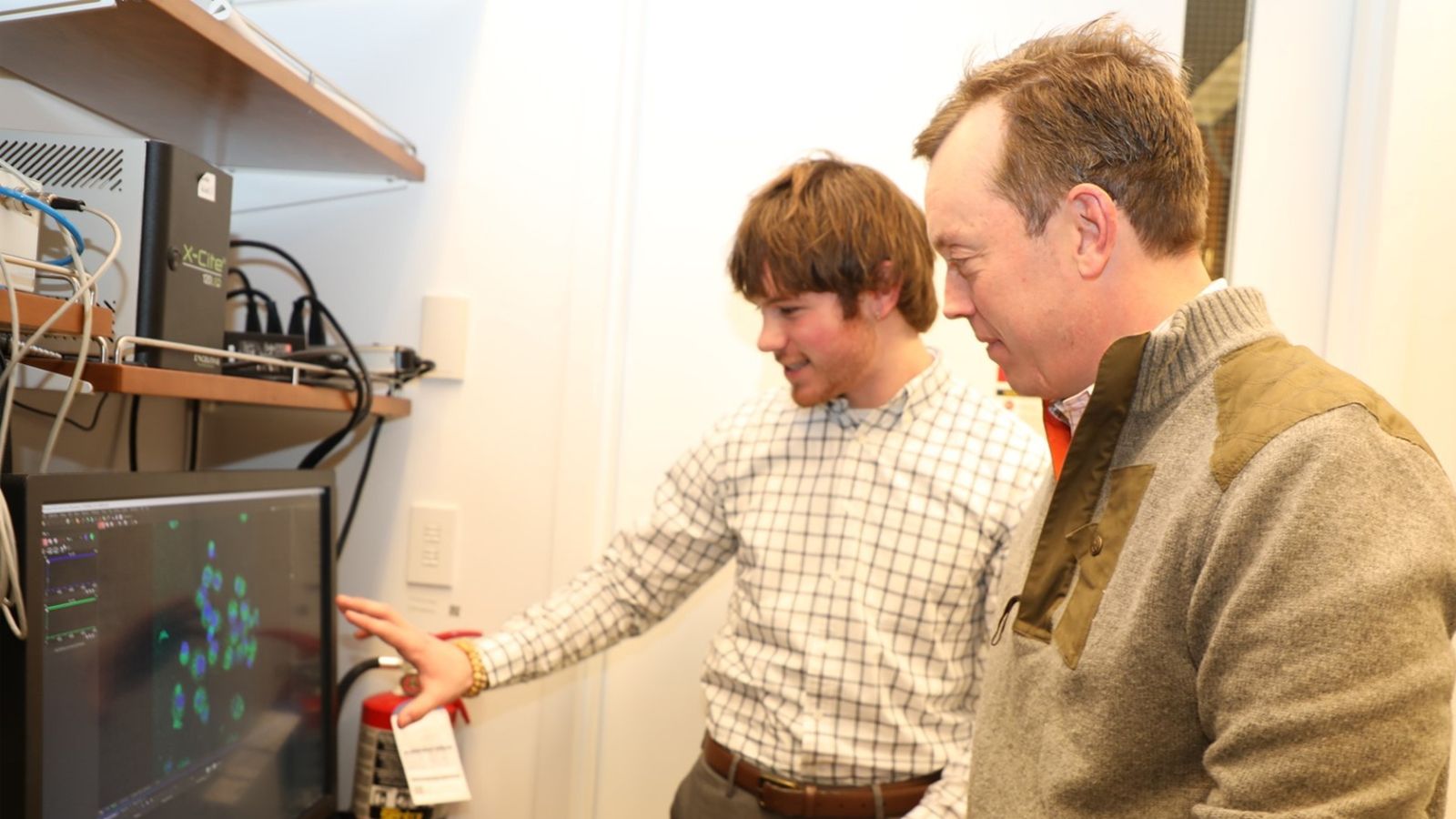A Hunter College research team is advancing a diagnostic tool that heralds new treatments for metastatic breast cancer.
Professor Brian Zeglis of the Department of Chemistry and his collaborators at Memorial Sloan Kettering Cancer Center recently completed a clinical trial of a radioactive drug called 89Zr-pertuzumab that allows physicians to determine if a breast-cancer patient is positive for human epidermal growth factor receptor 2 (HER2). Visualizing HER2-positive lesions can help guide biopsy and treatment of patients with diffuse tumors.
Zeglis, who is an assistant attending radiochemist at MSKCC, with full research privileges, exemplifies how Hunter College acts as an anchor institution in New York City, collaborating with nearby hospitals and research institutes to advance public health and achieve scientific breakthroughs. Zeglis, who earned a BA from Yale University and a PhD from the California Institute of Technology, did his postdoctoral work at MSKCC. He publishes frequently, with important recent papers in Lancet Oncology, the Proceedings of the National Academy of Sciences, the Journal of Nuclear Medicine, and the New England Journal of Medicine.
The radioactive drug the Zeglis Laboratory is testing represents a step forward from earlier diagnostic methods in terms of both efficacy and safety. The pilot study involves six patients and is the first time the substance has been tried in humans. Larger trials are planned soon.
“Too many patients miss out on effective treatments because it is so hard to tell who is a good candidate for certain drugs,” Zeglis said. “Our hope is that this imaging tool will help physicians identify the patients most likely respond to HER2-targeted drugs, and, so far, things are looking good.”
Zeglis is also a beacon of research for Hunter students. A Hunter – Macaulay Honors Hunters College junior, Shane McGlone, originated and is the lead researcher on a project with the Zeglis Lab to create radiolabeled imaging agents and therapeutics for atypical teratoid rhabdoid tumors, a rare and deadly brain cancer mostly affecting children under age three.
Zeglis’s chemistry alumni have gone on to plum graduate and medical schools, including James Brennan ’20 (University of Delaware), Sam George ’20 (Albert Einstein College of Medicine), Cindy Rodriguez ’19 (postdoctoral fellow, MSKCC), Benjamin Sanits ’18 (SUNY Downstate Medical School), and John Variano ’18 (Rutgers Medical School).
“One of the most wonderful things about working at Hunter is that it allows me to do cutting-edge, translational research with students who may normally not have access to these scientific fields and communities,” Zeglis said. “Frankly, it makes the science even more rewarding.”


